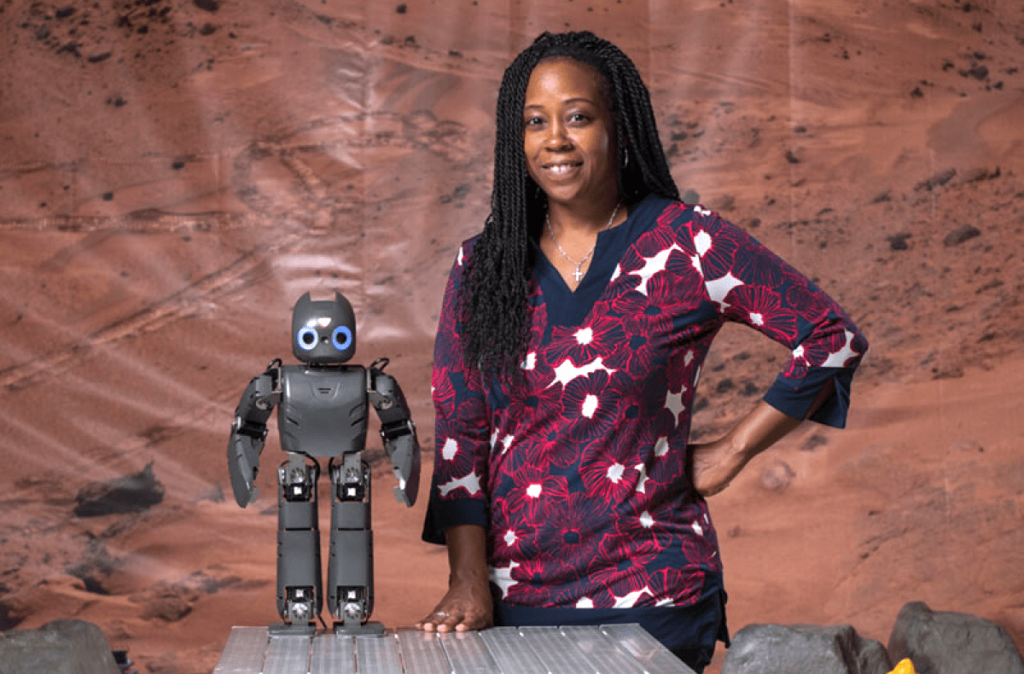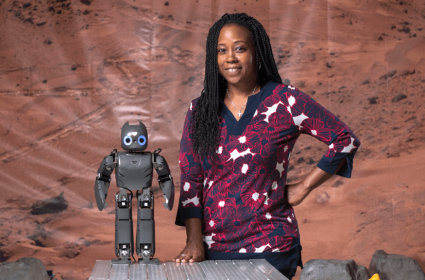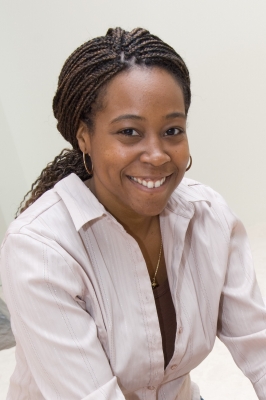
Robohub.org
318
Humanized Intelligence in Academia and Industry with Ayanna Howard


In this episode, Lauren Klein interviews Ayanna Howard, Professor and Chair of the School of Interactive Computing at Georgia Tech. Professor Howard describes her wide range of work in robotics, from robots that assist children with special needs to trust in autonomous systems. She also discusses her path through the field of robotics in both academia and business, and the importance of conducting in-the-wild robotics research.
Ayanna Howard
 Ayanna Howard is a Professor and Chair of the School of Interactive Computing at Georgia Tech. Professor Howard is the director and founder of the Human-Automation Systems (HumAnS) Laboratory. Her research focuses on humanized intelligence, with a wide range of applications from Human-Robot Interaction to science-driven robotics. Prior to Georgia Tech, she led research projects at NASA’s Jet Propulsion Laboratory. Professor Howard is also a founder and the CTO of the educational robotics company Zyrobotics.
Ayanna Howard is a Professor and Chair of the School of Interactive Computing at Georgia Tech. Professor Howard is the director and founder of the Human-Automation Systems (HumAnS) Laboratory. Her research focuses on humanized intelligence, with a wide range of applications from Human-Robot Interaction to science-driven robotics. Prior to Georgia Tech, she led research projects at NASA’s Jet Propulsion Laboratory. Professor Howard is also a founder and the CTO of the educational robotics company Zyrobotics.
Links
- Download mp3 (8.0 MB)
- Subscribe to Robots using Spotify
- Subscribe to Robots using iTunes
- Subscribe to Robots using RSS
- Support us on Patreon
tags: Algorithm AI-Cognition, c-Research-Innovation, cx-Education-DIY, cx-Research-Innovation, human-robot interaction, humanoid, podcast, Research, Robotics technology, Space


